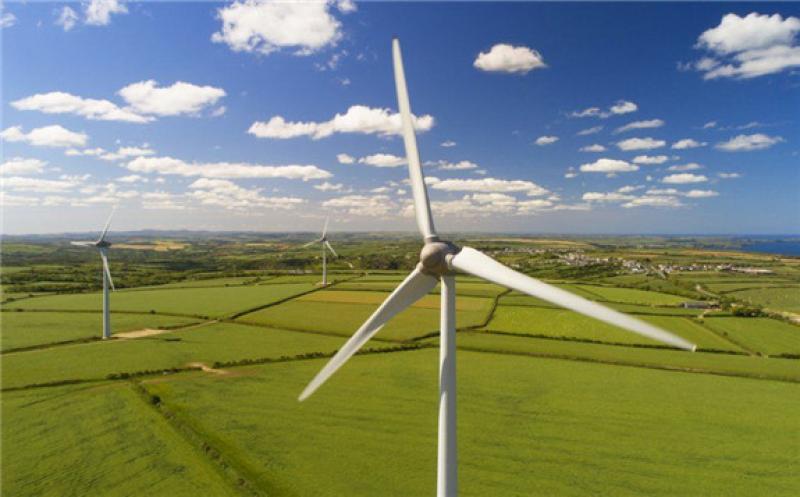The government is launching a review into how energy retailers market green tariffs to consumers.

Nine million British households are now on energy products that are advertised as being "100% renewable" or "green".
However, some energy companies accuse others of "greenwashing" - using marketing spin to make "dirty" fossil fuel electricity seem clean.
"Transparency is key to bring consumers on the journey to net zero," said Uswitch.com's Richard Neudegg.
The Department for Business is investigating whether suppliers need to provide clearer information about the types of renewable energy used, where it was generated and when.
It is also looking to gather evidence on whether third party intermediaries in the energy market, such as price comparison websites and auto-switching services - which currently operate outside the retail market rules - should be regulated.
"Millions of UK households are choosing to make the green switch and more and more of our energy comes from renewables, but I want people to know that when they sign up to a green tariff, they are investing in companies that make a conscious choice to invest in renewable energy," said Climate and Energy Minister Anne-Marie Trevelyan.
"Part of that is ensuring companies are being as transparent as possible on where their power comes from. That way, every family in Britain can rest assured their choices are helping to contribute to our world-leading target of eliminating our contribution to climate change by 2050."
Mr Neudegg, Uswitch.com's head of regulation, said: "More and more people are purchasing green tariffs but it's been difficult for bill-payers to know exactly what's under the hood of these deals. We support any measures that aim to demystify green tariffs for households."
Offsetting fossil fuels
One key concern raised about green energy tariffs is that suppliers make the claim after paying to obtain certificates that "offset" fossil fuels.
When an renewable unit of electricity is generated - for example, by a wind turbine - energy regulator Ofgem issues a Renewable Energy Guarantee of Origin (REGO) to the firm owning the wind turbine, to prove that this energy is green.
That firm is then allowed to sell both the electricity and the certificate separately.
There is a marketplace where leftover REGOs are traded, and there are enough of them "going spare" to allow energy suppliers to cover the proportion of fossil fuels they sell to customers on each tariff.
Each certificate costs just £1 or £2 per customer per year, meaning an energy supplier can make electricity from the wholesale market, which includes fossil fuels, look entirely green, at an affordable price.